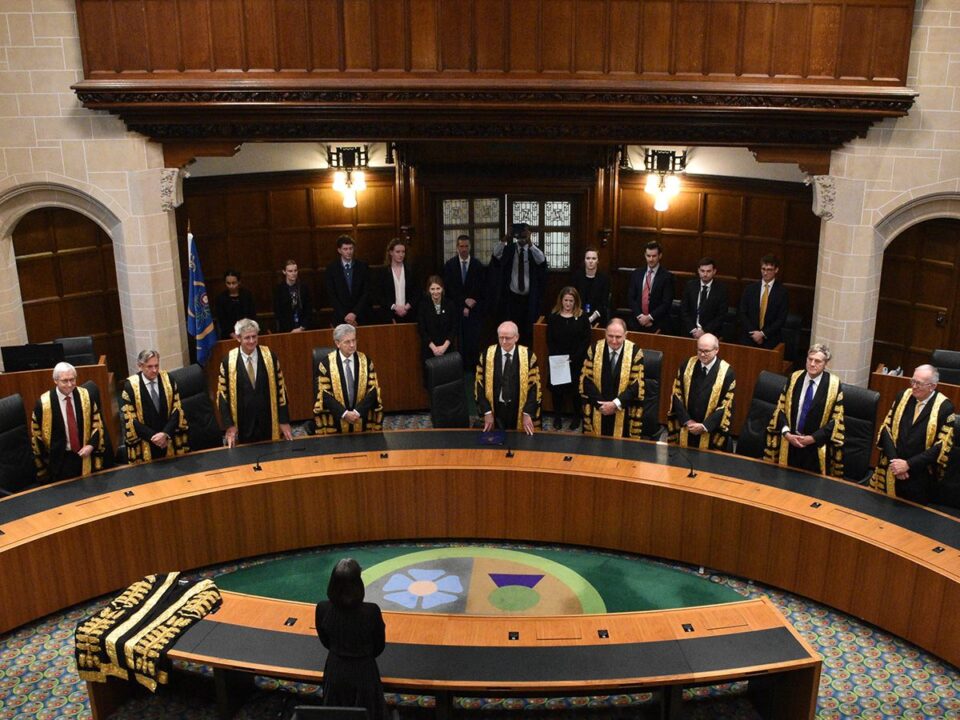Convict
Punishment and sentencing. The module is divided into three parts. The first part focuses on current sentencing policies in the England and Wales criminal justice system.
Students will study both custodial and non-custodial penalties and the regimes that apply to juveniles and mentally disordered offenders. Students will also be able to consider the historical development of the current approach.
In the second part of the course students will focus on a chosen area of penological interest to research and write their mini project which forms the largest single component of the assessment scheme. The third part of the course considers the underpinning philosophical justifications for punishment.
Students will consider retributive justifications and the concept of proportionality and look at deterrence, rehabilitation and incapacitation as well as looking at restorative models of justice
The Reception of Government
The idea that Mill was an apologist for middle-class interests was, of course, a later development. But what of his contemporaries’ views of the Essay on Government? For so short an essay, Mill’s Government proved to be remarkably controversial in his own day.
Tories and Whigs thought its message wildly and even dangerously democratic, while many of Mill’s fellow Utilitarians—including Bentham, John Stuart Mill, and William Thompson—believed that he did not go nearly far enough in advocating an extension of the franchise. Although more “democratic” in private discussion,
Mill publicly advocated extending the franchise to include all male heads of household over the age of forty, leaving them to speak for and represent the interests of younger men and all women:
One thing is clear, that all those individuals whose interests are indisputably included in those of other individuals, may be struck off without inconvenience. In this light may be viewed all children, up to a certain age, whose interests are involved in those of their parents.
In this light, also, women may be regarded, the interest of almost all of whom is involved either in that of their fathers or in that of their husbands (Mill 1992, 27).
This, his eldest son later remarked, was “the worst [paragraph] he ever wrote” (J.S. Mill 1961, 98). Most of Mill’s critics were quick to seize upon it, if only because its conclusion contradicts two of Mill’s oft-stated premises, namely that each of us is the best judge of our own interests and that anyone having unchecked power is bound to abuse it.
As William Thompson argued in Appeal of One Half Humans (1825), Mill’s premises pointed to the widest possible extension of the franchise, and not to the exclusion of “one half the human race,” viz. all women.
Education and Happiness
James Mill thought that “of all the circumstances which affect the happiness, the beauty, and order, and well-being of society, by far the most important” is individual character (Mill 1813a, 97). The shaping of character was no simple matter.
From the domestic to the political sphere, many institutions played a part in the “elevation of the people”: elevation “above ignorance, above swinishness, above prostitute servility, above oppression, above delusion religious or political, above grovelling vice, above subjection to the irrational passions” (Mill 1813c, 345;
Plass art 2008 and 2019). To adapt a famous Stoic idea, as we move from the inner to the outer concentric circles of affection and concern for oneself and for others, it becomes increasingly difficult (impossible even without conducive physical and moral circumstances), to abstain from doing harm or do positive good to others.
As we saw, without strong associations, the knowing subject’s mind hardly takes cognizance of the interests or even the existence of others outside the narrow circle of oneself, family, friends and associates.
The effects of misguided associations, Mill urged, require “the greatest attention in Education, and Morals”: the “love of our Fellow-creatures” is “completely impotent” against the “love of Wealth, or of Power.” Good education strengthens virtuous motives so that they do not “give way, habitually, whenever they are opposed by any other motive even of moderate strength” (Mill 1829a, II, 241). As he put it:
When the grand sources of felicity are formed into the leading and governing Ideas, each in its due and relative strength, Education has then performed its most perfect work; and thus the individual becomes, to the greatest degree, the source of utility to others, and of happiness to himself (Mill 1829a, II, 303).
Only when one cares enough to sacrifice that “part of the self which the good of our species requires” (Mill 1818, V, 527) can individual exertion be directed towards the pursuit of social happiness. But it was a pursuit neither for the narrow-minded nor for the faint-hearted. For this reason, Mill thought that no great public good could “rest with safety on anything so precarious, as the chance of extraordinary virtue in particular men” (Mill 1816, 248).
“Is it according to the experience of human nature, that men with the powers of government in their hands are angels and have never any propensity to oppress?”, he wondered (Mill 1813d, 464)
The Essay on Government
Whether justly or not, Mill’s modern reputation as a political theorist rests on a single essay. The Essay on Government, Mill later wrote, was meant to serve as a “comprehensive outline” or “skeleton map” with whose aid one could find one’s way across the vast, varied, and ofttimes confusing and dangerous terrain of politics (Mill 1820). Government,
Mill maintains, is merely a means to an end, viz. the happiness of the whole community and the individuals composing it. We should begin by assuming that every human being is motivated by a desire to experience pleasure and to avoid pain. Pleasures and pains come from two sources, our fellow human beings and nature.
Government is concerned directly with the first and indirectly with the second: “Its business is to increase to the utmost the pleasures, and diminish to the utmost the pains, which men derive from one another.” Yet, “the primary cause of government” is to be found in nature itself, since humans must wrest from nature “the scanty materials of happiness” (Mill 1992, 4–5).
Nature and human nature combine to make government necessary. It is man’s nature not only to desire happiness but to satisfy that desire by investing as little effort as possible. Labor being the means of obtaining happiness, and our own labour being painful to us, we will,
if permitted, live off the labour of others. To the degree that others enjoy the fruits of my labour, my primary incentive for working—namely my own happiness—is diminished if not destroyed.
Therefore, Mill continues, the primary problem in designing workable political institutions is to maximize the happiness of the community by minimizing the extent to which some of its members may encroach upon, and enjoy, the fruits of other people’s labour.
This cannot happen, Mill maintains, in a monarchy (wherein a single ruler exploits his subjects) or in an aristocracy (wherein a ruling elite exploits the common people). Nor can communal happiness be maximized in a direct democracy, since the time and effort required for ruling would be subtracted from that available for engaging in productive labour (Mill 1992, 7–9).
The only system that serves to the end of individual and communal happiness is representative democracy, wherein citizens elect representatives to deliberate and legislate on their behalf and in their interest.
The problem immediately arises, however, as to how representatives can be made to rule on the people’s behalf rather than their own. Mill’s answer is that frequent elections and short terms in office make it unlikely that elected representatives will legislate only for their own benefit. After all, representatives are drawn from the ranks of the people to which they can, after their term in office ends, expect to return.
Given what we might nowadays call the incentive structure of representative government, representatives have every reason to promote the people’s interests instead of their own. Indeed, in a properly structured system, there will be an “identity of interests” between representatives and the electorate (Mill 1992, 22)
Education, Power and Liberty of the Press
In short, Mill thought character depends on “the direction given to the desires and passions of men.” To this effect, the “business of good education” is to associate the “grand objects of desire” – e.g., wealth, power, dignity – with “admirable qualities”
in individuals (e.g. “great intelligence, perfect self-command, and over-ruling benevolence”), not wicked ones (e.g. “flattery, back-biting, treachery”) (Mill 1992, 193; Mill 1829a, II, 245).
Since the political (and legal) arrangements in a society are very powerful in solidifying such associations through various institutions and practices, “Political Education,” as we saw, is “the keystone of the arch” (Mill 1992, 193).
Not only is government responsible for fostering proper habits and associations with good laws, justice and the eradication of corruption, according to Mill; but also, government should be held accountable when it failed to do so.
Given that “our opinions are the fathers of our actions,” Mill argued amidst the debate on parliamentary representation, it is vital that individuals do not take the opinions of others upon trust or let others choose for them what is in their interest to pursue.
It was thus quite an important educational task to foster habits of examining the evidence which grounds opinions (Mill 1826, 10–11, 13–14; Mill 1992, 122, 126–130).
Inattention to evidence made the detection of fallacious thinking, lying underneath a host of prejudices, impossible. Especially since those “who stand on the vantage ground of power,”
Mill warned, had made an art of defending power through, what he called, “the logic of power”: the misrepresentation of facts, suppression of evidence, begging the question, argument from authority, appealing to fear, and inter alia, ridicule (Mill 1824, 465).
Due to the ever-present danger that political, legal and social institutions might foster “habits of servility and toleration of arbitrary power,” the “Liberty of the Press” is a vital counteracting social influence, and, for that reason, “an inestimable blessing” by securing good government (Mill 1813b, 211–212, Mill 1992, 117–123; Grint 2017).
The press functions thus as a sort of “high and constant observer” of government acts (Mill 1992, 107) through apt diffusion of praise and blame to public functionaries.






